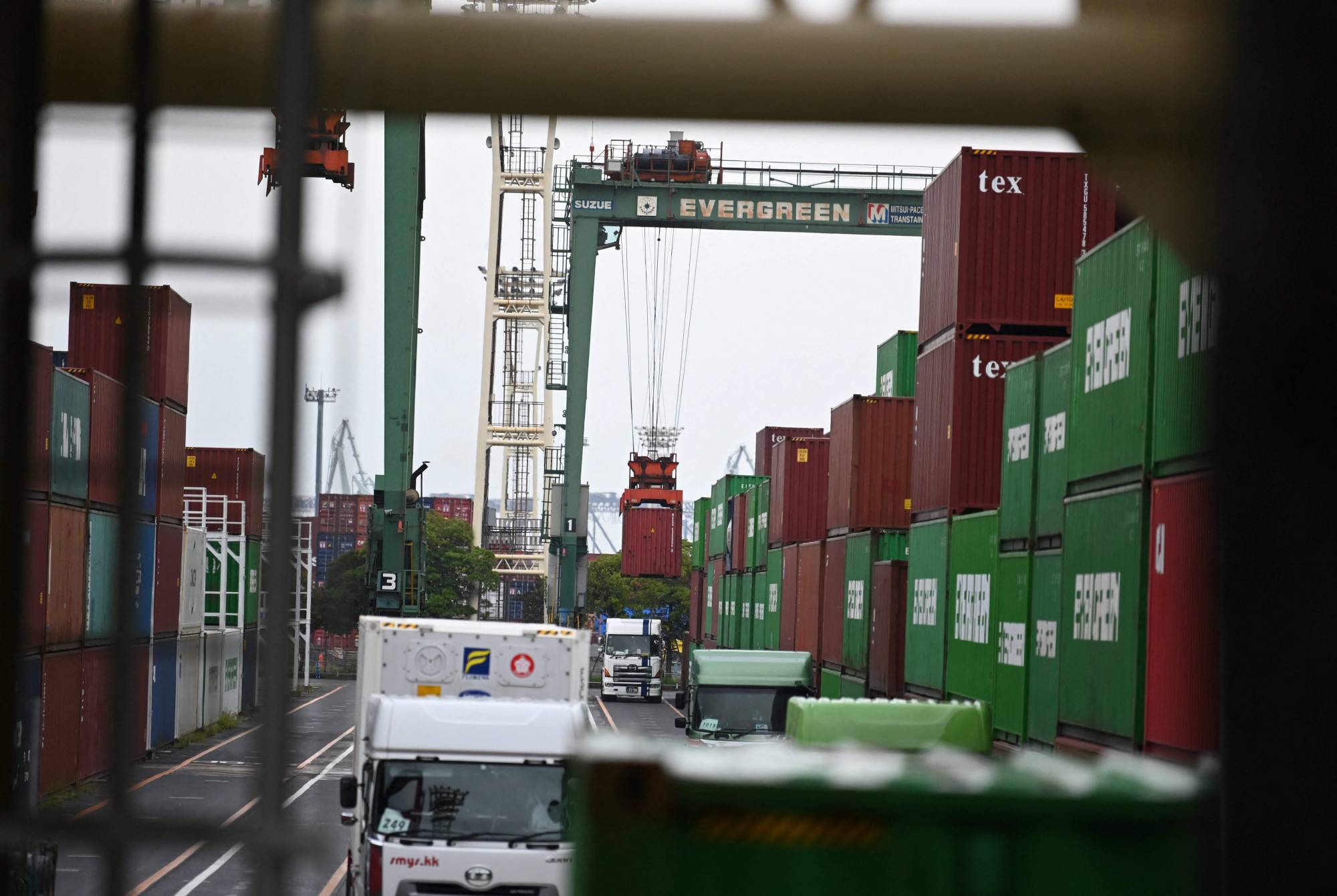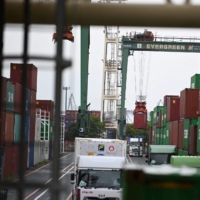Japan’s government kept its assessment of the economy unchanged Thursday, even after an expansion of its fourth state of emergency amid its worst yet outbreak of COVID-19.
In its monthly report for August, the Cabinet Office described the overall economy as continuing to improve from an extremely low base for the fourth consecutive month, while again flagging pockets of increasing weakness among service businesses.
The report once again highlighted a divide between Japan’s exporters, which have benefited from the global recovery, and restaurants, bars and other service businesses that have struggled all year under on-again-off-again restrictions to control the virus.
For individual segments, the government downgraded its view of imports, saying there was a stall in progress toward a recovery. It upgraded its assessment of corporate profits, characterizing them as picking up despite weaknesses in the service sector.
Japan expanded its state of emergency Wednesday to cover more than 70% of the population and 79% of the economy.
That’s likely to put further pressure on consumer spending as requests for people to limit movement become stricter. A delta-variant fueled surge has pushed up daily case numbers nationwide to records above 20,000, putting strains on the medical system.
The emergency is currently scheduled to be lifted on Sept. 12, but the surge isn’t showing signs of stopping. Whether the rise in cases can be brought to heel could sway Prime Minister Yoshihide Suga’s future, as he faces a party leadership election next month, and a general election by the fall — assuming he survives the leadership race.
Economists expect Japan to maintain growth this quarter, after narrowly avoiding another technical recession in the three months ended June.



















With your current subscription plan you can comment on stories. However, before writing your first comment, please create a display name in the Profile section of your subscriber account page.